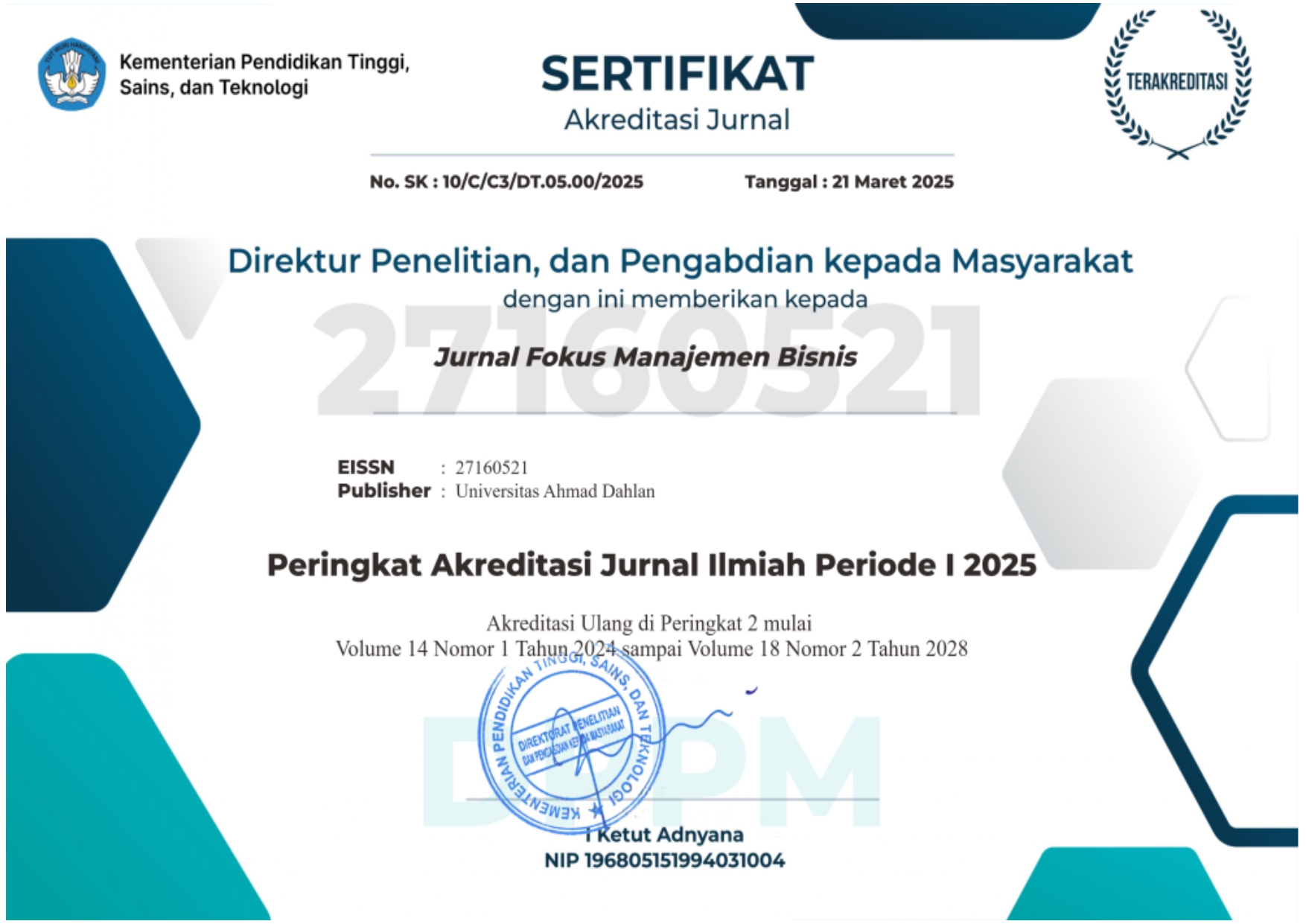ANALISIS PENGARUH KETIDAKPUASAN KONSUMEN, IKLAN, DAN KARAKTERISTIK KATEGORI PRODUK TERHADAP KEPUTUSAN PERPINDAHAN MEREK PADA SABUN PEMBERSIH WAJAH
DOI:
https://doi.org/10.12928/fokus.v2i2.1322Keywords:
Brand Switching Decisions, Consumer Dissatisfaction, Advertising, Product Category, CharacteristicsAbstract
This study backs in the background by the emergence of the phenomenon of the emergence of new brands specifically for facial cleansing product category. A variety of brands of soap facial cleanser began competing, it is characterized by high levels of displacement brand of soap facial cleanser. The purpose of this study was to determine the effect of consumer dissatisfaction, advertising and the characteristics of the product categories of decisions of brand switching. The research was conducted on student Ahmad Dahlan School of Economics University of soap facial cleanser and the specified number of sample of 100 respondents by using multiple linear regression, t test, F test, and R2 (coefficient of determination).Downloads
Published
2012-09-30
How to Cite
Pramuninggar, S., & Bidayati, U. (2012). ANALISIS PENGARUH KETIDAKPUASAN KONSUMEN, IKLAN, DAN KARAKTERISTIK KATEGORI PRODUK TERHADAP KEPUTUSAN PERPINDAHAN MEREK PADA SABUN PEMBERSIH WAJAH. Jurnal Fokus Manajemen Bisnis, 2(2), 88–95. https://doi.org/10.12928/fokus.v2i2.1322
Issue
Section
Articles
License
Authors who publish with this journal agree to the following terms:Â
- Authors retain copyright and grant the journal right of first publication with the work simultaneously licensed under a Creative Commons Attribution License that allows others to share the work with an acknowledgment of the work's authorship and initial publication in this journal.
- Authors are able to enter into separate, additional contractual arrangements for the non-exclusive distribution of the journal's published version of the work (e.g., post it to an institutional repository or publish it in a book), with an acknowledgment of its initial publication in this journal.
- Authors are permitted and encouraged to post their work online (e.g., in institutional repositories or on their website) prior to and during the submission process, as it can lead to productive exchanges, as well as earlier and greater citation of published work (See The Effect of Open Access).






